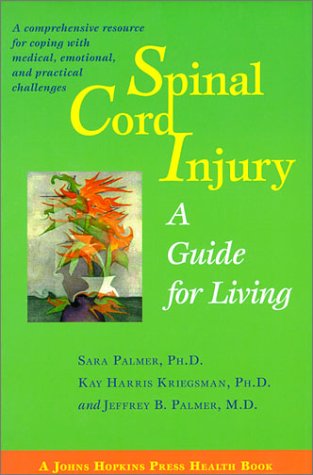A Johns Hopkins Press Health Book
3 total works
If you have a child with a physical disability, how can you plan your family's life in a way that is inclusive for everyone? What can you do to create a family where every member pulls his or her own weight (in appropriate measure), meets challenges, and has moments in the spotlight along the way? Most parents of a child who has a physical disability want their child to have fun, be responsible, make friends, and take acceptable risks-in short, to feel like "just one of the kids"-and they want to make sure that the needs of the whole family are met, too. Just One of the Kids is designed to help parents focus not on what could have been but instead on what can be, so that they, their children, and the grandparents thrive as individuals and as a family. The advice from psychologists Kay Harris Kriegsman and Sara Palmer is valuable for any family with children who have a physical disability, from any cause. Their warm and encouraging book is full of family stories, tips, and tools. Parents of children with physical disabilities can help them develop the skills needed to meet life's challenges and launch into independence.
Parents, building on that foundation and acknowledging each person's contributions, interests, and aspirations, create an inclusive and resilient family.
Parents, building on that foundation and acknowledging each person's contributions, interests, and aspirations, create an inclusive and resilient family.
Spinal Cord Injury
by Sara Palmer, Kay Harris Kriegsman, Jeffrey B. Palmer, and Kay Harris Kreigsman
Published 17 April 2000
This text is designed to help people with spinal cord injury - and their family members and friends - during the rehabilitation process and the journey that follows. It reviews the challenges that may be encountered and addresses all aspects of injury - psychological, sexual, and social - and other issues including transportation, housing and employment. The authors explain how spinal cord injury affects physical functioning and how those changes may lead to lowered self-esteem, depression, family conflicts and social isolation - all problems which can derail the adaptation process. They also remind readers that, as with any major life crisis, spinal cord injury can be a catalyst for positive change, challenging a person to find creative channels for self-expression, personal strength and new ways of being in the world. Illustrating each chapter with patient histories ranging from the relatively mild to moderate and severe disability, the authors begin by demystifying what takes place during emergency treatment and hospitalization and explaining the consequences of different kinds of spinal cord injury.
Later chapters describe rehabilitation, returning home and learning to live independently.
Later chapters describe rehabilitation, returning home and learning to live independently.
A stroke can alter two people's lives in an instant. For the person who has had a stroke, simple tasks suddenly become difficult or impossible. For that person's partner, life seems to revolve mostly around the stroke survivor's needs. Such a drastic change naturally requires making many, sometimes taxing, adjustments. In this book, two experts in stroke recovery help couples deal with the impact of stroke on their lives and their relationship. Drs. Sara and Jeffrey Palmer explain how to overcome three major challenges: * providing quality care for your partner* maintaining or rebuilding your relationship* caring for yourself as an individual The book invites you into the lives of real couples who are themselves coping with these challenges. Their experiences model how you can improve essential aspects of your relationship, including communication, roles and responsibilities, and sexuality. A list of practical tips summarizes each chapter, providing a handy reference guide to meeting each day's challenges.
More than just a discussion of the medical and practical aspects of stroke and stroke recovery, this book focuses on the emotional, psychological, and social consequences of stroke and the deeply personal side of caregiving. When Your Spouse Has a Stroke will relieve your burden and strengthen your partnership.
More than just a discussion of the medical and practical aspects of stroke and stroke recovery, this book focuses on the emotional, psychological, and social consequences of stroke and the deeply personal side of caregiving. When Your Spouse Has a Stroke will relieve your burden and strengthen your partnership.

